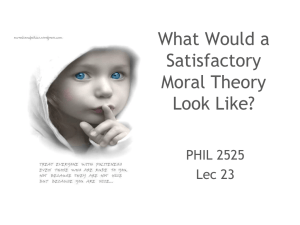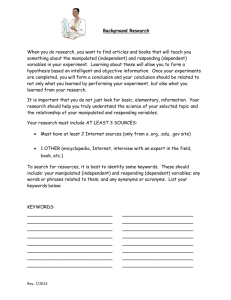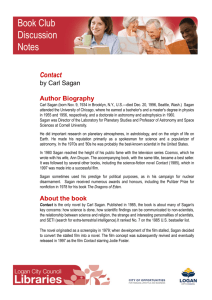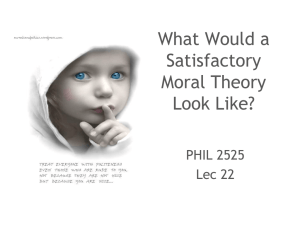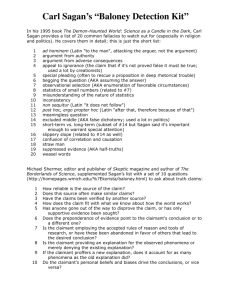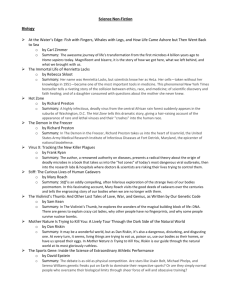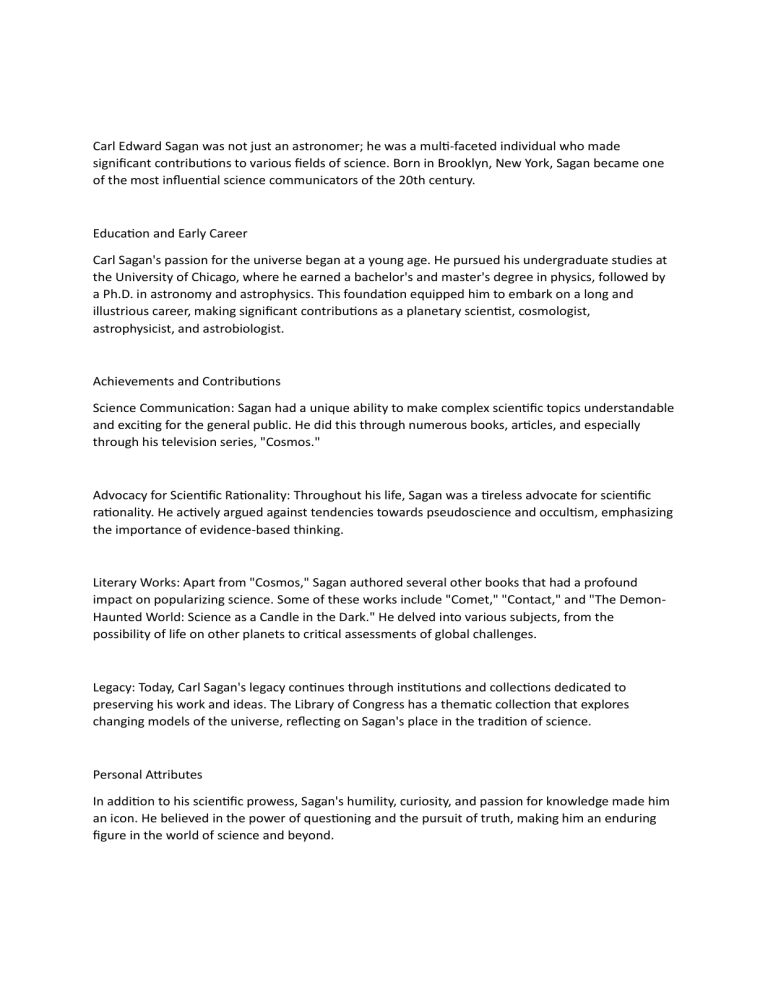
Carl Edward Sagan was not just an astronomer; he was a multi-faceted individual who made significant contributions to various fields of science. Born in Brooklyn, New York, Sagan became one of the most influential science communicators of the 20th century. Education and Early Career Carl Sagan's passion for the universe began at a young age. He pursued his undergraduate studies at the University of Chicago, where he earned a bachelor's and master's degree in physics, followed by a Ph.D. in astronomy and astrophysics. This foundation equipped him to embark on a long and illustrious career, making significant contributions as a planetary scientist, cosmologist, astrophysicist, and astrobiologist. Achievements and Contributions Science Communication: Sagan had a unique ability to make complex scientific topics understandable and exciting for the general public. He did this through numerous books, articles, and especially through his television series, "Cosmos." Advocacy for Scientific Rationality: Throughout his life, Sagan was a tireless advocate for scientific rationality. He actively argued against tendencies towards pseudoscience and occultism, emphasizing the importance of evidence-based thinking. Literary Works: Apart from "Cosmos," Sagan authored several other books that had a profound impact on popularizing science. Some of these works include "Comet," "Contact," and "The DemonHaunted World: Science as a Candle in the Dark." He delved into various subjects, from the possibility of life on other planets to critical assessments of global challenges. Legacy: Today, Carl Sagan's legacy continues through institutions and collections dedicated to preserving his work and ideas. The Library of Congress has a thematic collection that explores changing models of the universe, reflecting on Sagan's place in the tradition of science. Personal Attributes In addition to his scientific prowess, Sagan's humility, curiosity, and passion for knowledge made him an icon. He believed in the power of questioning and the pursuit of truth, making him an enduring figure in the world of science and beyond.

